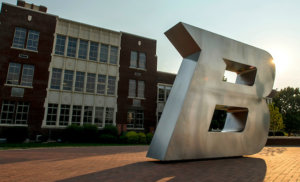Respiratory Care New Student Orientation – Step 3

Student Code of Conduct

The Student Code of Conduct provides standards that guide students as they strive to uphold the Statement of Shared Values. The goal of the Code is to promote growth and learning for students as they contribute to the best possible learning environment and accept responsibility for decision-making.
The Office of the Dean of Students is responsible for overseeing and enforcing the Student Code of Conduct, and students are responsible for understanding the Code and acting in ways that promote the Boise State Shared Values. When it is suspected that a violation of the Student Code of Conduct may have occurred, the student conduct process may be initiated. This is an educational process focused on accountability, development, and understanding students’ rights and responsibilities as members of the academic community.
For the complete policy, consult the Student Code of Conduct located on the Office of the Dean of Students website.
Academic Integrity
Academic integrity is one of the principles discussed in the Student Code of Conduct. Academic integrity is vital to Boise State’s mission and to upholding our Shared Values of Academic Excellence, Responsibility, Fairness, and Trustworthiness. Acting with academic integrity requires giving credit to all ideas and information that are not your own through citation, taking credit for your own work and ideas, completing work independently (unless asked to collaborate in a group), and making sure you understand all of your professors’ expectations.
In short, academic integrity means that you are engaging with all of your academic work and the people in your communities of learning in a way that is honest, open, and ethical so that you are able to get the most out of your time at Boise State. Academic integrity allows us to truly and deeply learn, confront challenges, maintain respect and fairness in class, and graduate with authentic degrees that are trusted. The entire Boise State community is positively impacted and the value of Boise State degrees are enhanced when students demonstrate integrity in the classroom and in the workforce after graduation.
Academic Misconduct
Academic Misconduct can occur when students do not act with academic integrity. Boise State takes academic misconduct seriously because it undermines fairness, the credibility of our programs and degrees, and the ability of students to truly learn what they are supposed to learn. Below are the three most common types of academic misconduct at Boise State. Understanding academic misconduct can help students avoid it. If you ever have a question about the expectations for an assignment or if you are behaving ethically, it is always best to ask and avoid engaging in academic misconduct.
Cheating
Cheating is any behavior that results in a student gaining an unfair advantage over peers. It most often includes the unauthorized use or sharing of materials or assistance. Some examples of cheating include completing homework using resources (such as websites like Chegg) that your faculty member did not approve you to use, using unauthorized study aids or notes while completing exams, and sharing your work with others to use. It’s important to note that attempting to cheat or helping other students engage in academic misconduct constitute cheating.
Plagiarism
Plagiarism includes the use of ideas, data, or language of another without proper citation and presenting the ideas, data, or language of another person as one’s own. Plagiarism can include behaviors like purchasing a paper, copying direct quote and presenting them as if it’s your own words, and paraphrasing a source but neglecting to include a citation. Lack of knowledge of proper citation is not a valid excuse for plagiarism; it is the responsibility of the student writing the material to know the proper methods for citation and/or seek assistance when needed. Resources like the Library and the Writing Center are available to assist online students with citation.
Unauthorized Collaboration
Unauthorized collaboration occurs when students work together on academic exercises that were intended to be completed independently. It can also occur when the faculty member has given permission for students to collaborate or study together, but the students cross a boundary and submit work that is too similar. It is recommended that you ask your professors if it is alright to study together or collaborate on a project if it isn’t clear.